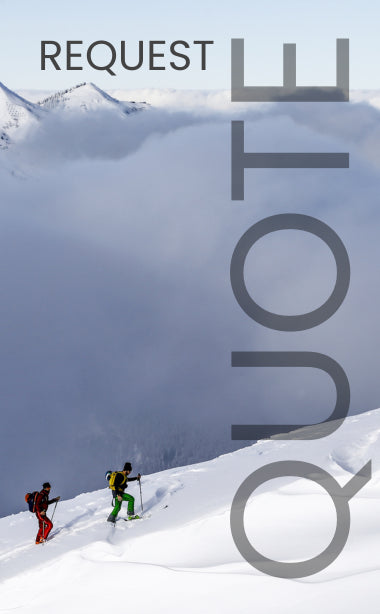You have no items in your shopping cart.
Skiing and Snowboarding Safety Tips
Snow means a lot of different things to people around the world. Some never see it. Some hate it, viewing it as a nuisance that requires hours of backbreaking shoveling just to get their car out of the garage. Others love to watch the snowfall… as long as they're watching through a window while curled up near a fireplace indoors. But for some people, snow takes on a whole new meaning: skiing and snowboarding season!
If you're one of those individuals who can't wait to get out on the slopes and feel the wind rushing past you as you soar down the side of a mountain, you're probably already planning a trip. There are tons of fantastic ski resorts all over the world, and some definite favorite destinations for snowboarders. Maybe you already have a favorite resort that's like a second home to you, or maybe you're looking for somewhere new to go. Either way, it's sure to be a blast!
Of course, as with any sport, avoiding accidents should be a top priority (right up there with having fun). It's undeniable that any activity as thrilling as skiing or snowboarding has a high potential for misfortune. An injury is definitely possible (and common). You can get lost, too, especially if you're somewhere new— and in a frozen environment, that can be deadly as well.
There's nothing like a life-threatening situation to spoil your trip, so keep the following in mind to ensure you have a great (and safe) time.
- Tell someone at home where you're going and when to expect you back. This is something you should do before any trip, but when you're about to go on vacation, dangers are the furthest thing from your mind, so you might neglect precautions like this one. Don't.
- Pay attention to the weather and warnings. Conditions can change very quickly in the mountains, and if you have foreknowledge of what to look for, you can gain an instinct for when to reschedule or turn back. Listen to the resort staff— they know what to watch out for.
- Learn the area. Study maps before you venture out, and commit as much to memory as you can, especially if you're going somewhere new. The more details you can remember, the better.
- Keep your mind sharp while on the slopes. Drifting off mentally can lead you down a wrong turn, or worse, straight into a devastating injury. Of course, you're on vacation, but that doesn't mean you don't have something on your mind. Keep focused!
- Don't stray off the trail. True that your sense of adventure (and search for fresh powder) cannot be truly contained, but trails are marked off for a good reason. Going off the trail exposes you to unknown dangers as well as the risk of getting lost, and it happens easier than you think.
- Wear bright colors. If you do get lost, bright colors will make you easier to spot from the air or through the trees.
- Bring a satellite phone. You can't rely on cell service where you're going, and being able to call for help can mean the difference between a quick rescue and trying to survive for days in a frozen landscape— or death. Iridium satellite phones are best for mountainous areas, although Thuraya is another good option in parts of Europe and Asia. You don't even have to drop a huge chunk of change to get a satellite phone. You can rent a satellite phone from Outfitter Satellite, and buy a SIM card that can be activated later so you're sure to have the airtime when you need it.
You'll have a much better trip if you know you're prepared for danger, even if an accident still strikes regardless of the care you take. A satellite phone will have you in touch with help right away, even if you're hurt, as long as you have a clear line of sight to the sky.
Now that we've gone over these safety precautions, it's time for you to plan, prepare, and enjoy— and stay in touch!
 English
English












